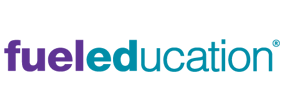An increasing number of school districts are leveraging the flexibility of and demand for online and blended learning by creating schools dedicated to web-based instruction.
In this web seminar, presenters discussed how the Nevada Learning Academy is essential to Clark County School District’s effort to provide supplemental online courses to over 100 middle schools and high schools across one of the nation’s largest school districts. A panel of experts also outlined strategies for harnessing technology to deliver individualized instruction to a diverse student population.
Speakers
John Watson
Founder and CEO
Evergreen Education Group
Andrea Connolly
Principal
Nevada Learning Academy (NVLA)
Clark County School District (Nev.)
Anna Slighting
Spanish Teacher
Nevada Learning Academy (NVLA)
Clark County School District (Nev.)
John Watson: Evergreen Education Group has been studying the field for about 20 years, and we’ve worked with many schools, districts and companies. One of the trends we’ve seen has been a growing number of districts creating district-level online schools. In a lot of instances, these online schools provide courses, services and other support to districts’ physical schools, combining both online and blended instruction strategies to reach a wide range of students.
Clark County School District in Nevada is one of the largest school districts in the country and has one of the most mature online schools: the Nevada Learning Academy. It’s a good example of a district-run online school that’s providing a wide range of services to its students.
Andrea, what does it mean to be the principal of a school like the Nevada Learning Academy?
Andrea Connolly: The Nevada Learning Academy offers a digital education, providing content online in a lot of different areas for middle school and high school. We use a hybrid model in which the students meet with their teachers, have direct instruction for two days per week, and then do the rest of their coursework online. For our high school students, content is provided online, but they do have options for teacher support on our campus when they need it. Being the principal here has been different. I came from a very large, comprehensive magnet high school with over 3,200 students, so to come to an online school was a change. But I have found it very rewarding and challenging trying to make the digital school day just as engaging and as useful to the students as the traditional school day.
John Watson: Anna, can you tell us what it’s like to be a teacher at an online school?
Anna Slighting: Like many teachers, I innately want future generations to succeed, and I appreciate the opportunity that I have to provide equitable access to a quality curriculum for all students in our district. So I always take pride in the fact that we can meet the needs of just about any type of student who doesn’t fit into that normal, brick-and-mortar mold. Brick-and-mortar classes are large. Classroom management is difficult. A lot of the supplies and resources are outdated. So being able to bring a blended and 100% virtual component into the children’s education experience opens up opportunities for them where they can have more individualized learning experiences. We don’t have the classroom management issues that we had. Instead, we spend a lot of our time tracking students’ progress and communicating with parents.
John Watson: What are the skills and competencies that you feel are most critical?
Anna Slighting: The teacher has to have the mindset that all students can learn in any environment. Because as teachers, if we have the same fixed mindset that all students can’t learn online, then we’re not going to put the time and effort into growing those students. We have to believe in our students first.
We also need to hire or grow our teachers with that mindset, and then from there, the teachers need to have a growth mindset about their technological capabilities. Most of us did not start in an online school, but most of us do have a desire to improve our profession and to learn new skills.
John Watson: Andrea, how you think about teacher growth and professional learning?
Andrea Connolly: I obviously believe strongly in professional learning. I try to provide as much as possible for the teachers, and when teachers come to me with an idea, then we try to promote it. If they don’t make sure that they have the  skills, then it doesn’t matter how good your course is; the student won’t be as successful. The teacher is the key to the student’s success.
skills, then it doesn’t matter how good your course is; the student won’t be as successful. The teacher is the key to the student’s success.
To watch this web seminar in its entirety, please visit DAmag.me/ws050119







